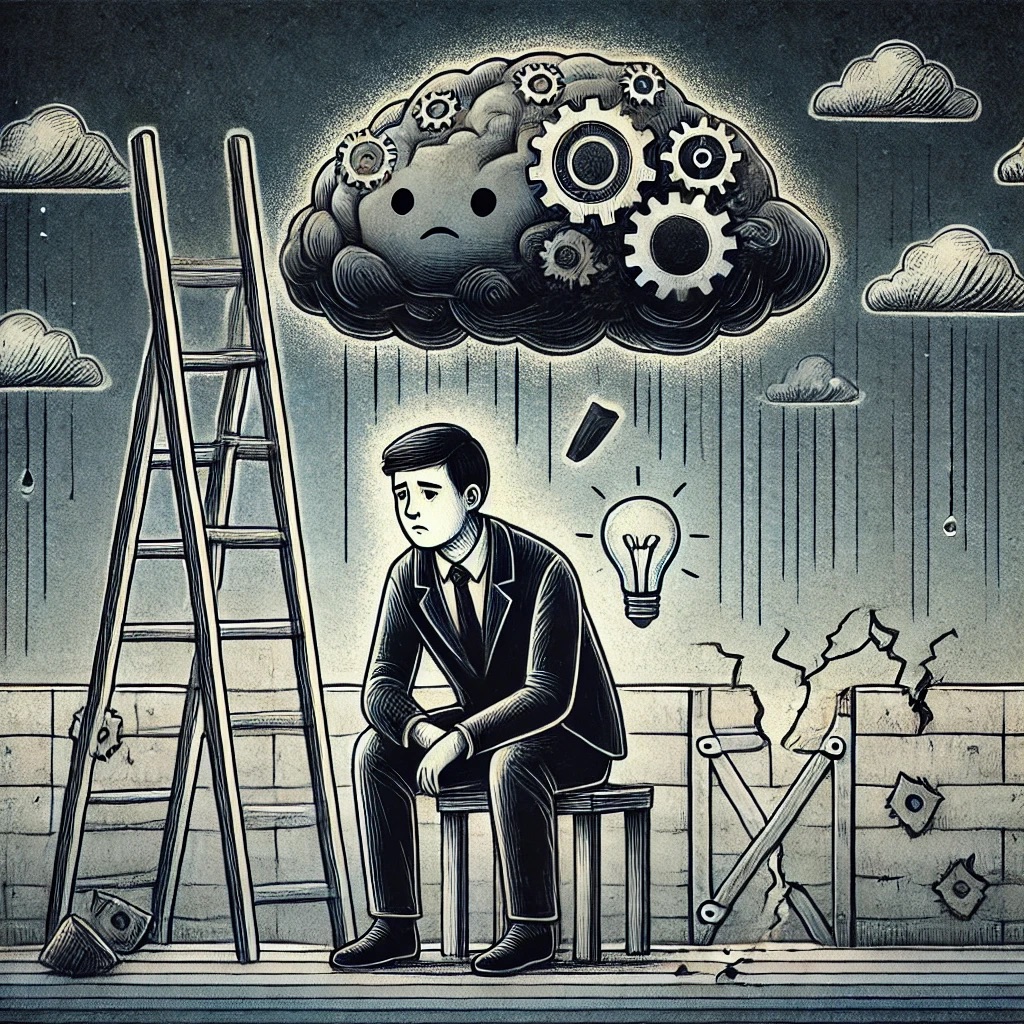
Alright, let’s clear up what we mean by fixed and growth mindsets. Simply put, a fixed mindset believes that abilities and intelligence are static. You’re either good at something or you’re not. Meanwhile, a growth mindset believes that with effort and perseverance, abilities can develop and improve over time. How do I know if I have a fixed mindset?
Psychologically speaking, this boils down to how we perceive our abilities and potential. When you have a fixed mindset, challenges or failures can feel like defining moments, proving your inherent limitations. A growth mindset sees these moments as opportunities to grow and learn.
Carol Dweck, a renowned psychologist, made these terms popular. Her research shows that the way we think about our talents can dramatically influence how we perform and feel. Through her work, we’ve learned that shifting to a growth mindset can unlock new levels of achievement and well-being.
Imagine this: You’ve always considered yourself bad at math. That’s a fixed mindset. But if you start believing that with practice, you can get better, you’re embracing a growth mindset. This shift in thinking can change the trajectory of your efforts and successes.
Assessing Your Own Mindset
Figuring out whether you have a fixed or growth mindset starts with some serious self-reflection. Ask yourself questions like: Do I view challenges as obstacles or opportunities? How do I react to feedback? What’s my attitude towards learning new things? Your answers can reveal a lot about what kind of mindset you lean towards.
Look for signs you might have a fixed mindset. For instance, do you get easily frustrated when things don’t come naturally? Are you afraid of appearing incompetent, so you stick to what you know well? Do you tend to give up easily when faced with difficulties? If these sound familiar, you might have a fixed mindset.
On the other hand, if you embrace challenges, see effort as a path to mastery, and persist in the face of setbacks, these are signs of a growth mindset. You’re likely to value feedback, view failures as opportunities for growth, and enjoy learning new things.
Hearing from others can also help you gauge your mindset. Many people share personal stories that showcase their journey from a fixed to a growth mindset. These stories can be incredibly inspiring and relatable, making it easier to see where you might fit in. So, listen up and learn from those who’ve been there.
Impact of Fixed and Growth Mindsets on Personal and Professional Life
Your mindset has a huge influence on both your personal and professional life. If you have a fixed mindset, you might avoid challenges, fearing failure. This can limit your learning and personal growth. You might miss out on opportunities because you don’t believe you can improve or excel.
In your career, a fixed mindset can be a real setback. When you believe your talents are unchangeable, you might avoid taking on new responsibilities or learning new skills, thinking you’re just not capable. This holds you back from career advancement and job satisfaction.
On the flip side, a growth mindset can lead to incredible progress. When you believe your abilities can develop, you’re more likely to take on challenges, seek feedback, and persist through difficulties. This can result in continuous learning and career growth.
Consider some real-life case studies. Individuals who shifted from a fixed to a growth mindset often share stories of significant career and personal development. They started embracing challenges, learning from criticism, and viewing failures as stepping stones. This shift opened doors to new opportunities and successes.
A fixed mindset isn’t just a low-key inconvenience; it can have real consequences. From stagnating personal growth to missed professional opportunities, the effects are widespread. Recognizing the impact of your mindset is the first step to making meaningful changes in your life.
Cultivating a Growth Mindset
Practical steps can help you develop a growth mindset. Start by embracing challenges. When faced with something difficult, view it as an opportunity to learn and grow. Don’t shy away from tasks just because they seem tough or unfamiliar.
Learning to see effort as a path to mastery is crucial. It’s not about being perfect right away but about making progress. Each time you put in the effort, you’re building your skills and getting closer to your goals.
Facing failures is another big one. Instead of seeing failure as a reflection of your worth, start seeing them as feedback. What can you learn? How can you improve? This shift in thinking is powerful.
Continuous learning and development play a huge role. Stay curious and seek out new knowledge. Whether it’s reading books, taking courses, or learning from others, keep pushing yourself.
There are plenty of resources to help you on this journey. Books like Carol Dweck’s “Mindset,” online courses, and workshops focused on personal development can be extremely helpful. Even tools like journaling can help you track your progress and reflect on your growth.
